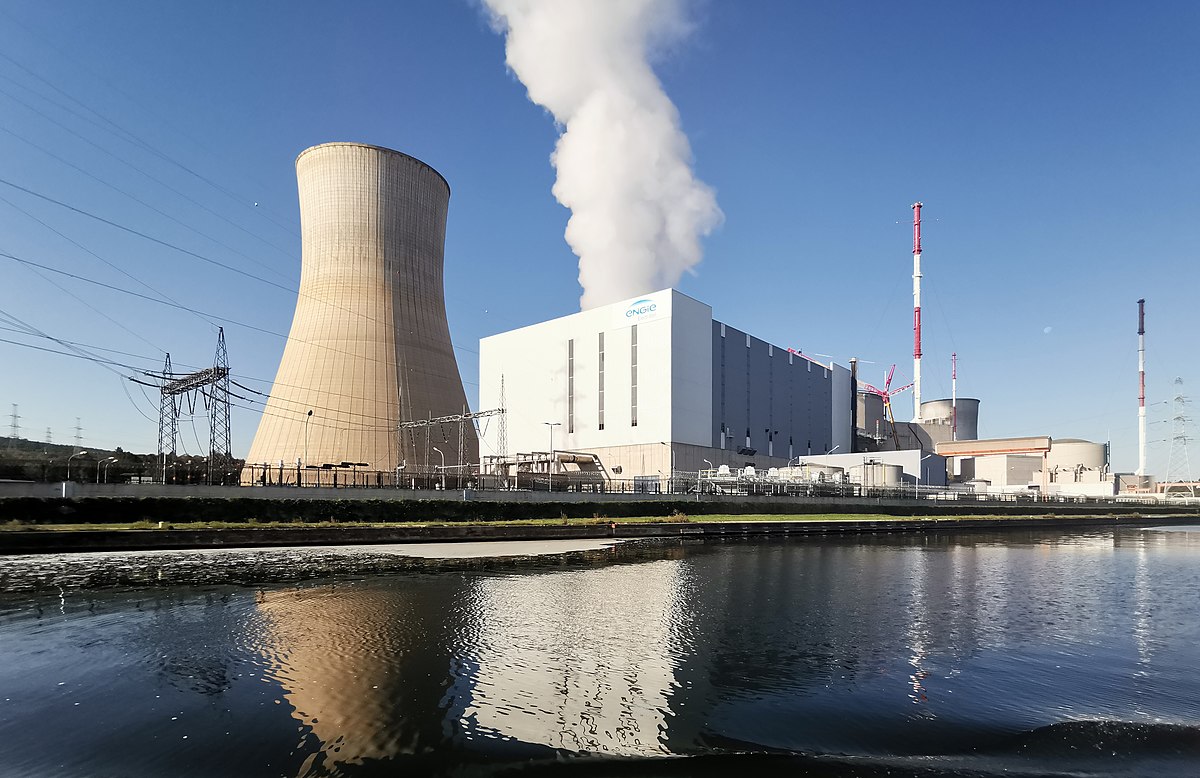“Poland can reach a compromise on the so-called winter package and the regulations on the 550 kg/MWh emissions limit for power plants. To do that a clear decarbonization strategy is necessary. It is obvious that coal will not disappear from the Polish energy sector instantly. However, we do not have a clear, coherent vision of gradual departure from coal spread over a few decades,” argues Maciej Bukowski, PhD, President of WiseEurope think tank.
In early July a vice-minister for energy announced the assumptions for Poland’s energy policy which will be published in autumn. The policy will be based on the energy mix, i.e. division and size of energy production from available sources. Coal will remain the foundation of the Polish energy sector. Biznesalert.pl asked Maciej Bukowski, PhD and President of the WiseEurope think tank for comments.
BiznesAlert.pl: The assumptions for the 2030 energy mix, where coal will constitute 60%, have been announced. Do you think this is a modern or conservative project?
This is a rather conservative project, but it is grounded in reality. The government is starting to admit that coal participation will be decreasing in our energy balance. Nevertheless, until 2030 it will be the main source of electricity and heat production, but to a lesser degree than today, which is a good sign. However, the problem is somewhere else – despite the assumed drop in coal participation it has not been revealed what will replace it in the end. The chosen deadline is also not a good determinant. At that time some of the existing assets will be still in use, but their days will be numbered. This pertains to, for instance, brown coal units whose majority will be out of use in the 2030s. Therefore, we do not know whether in 2030 we will be producing 60% of electricity and heat from coal and at the same time build low-emission capacities, or quite to the contrary, large-scale investments in coal units will be in place. Both ideas have been partially announced.
The issue that will determine brown coal’s role in the mix is the future of the open-pit mine in Złoczew, which is a very controversial topic among environmentalists and local inhabitants. PGE did not decide how much coal should be extracted there and doesn’t have the permit. How will the future of this deposit impact the energy mix?
This is a question about the foundation of our energy balance. The first thing we need to do is decide whether in the long-term, we want to include in the basis of our energy system brown coal or nuclear energy, or perhaps we are planning to completely rebuild its traditional structure into a system without sources that work non-stop. These strategies are mutually exclusive. It would be good if the government made a decision in this aspect and clearly declared its costs and risks. Still, in my opinion the brown coal scenario is the least likely. We need to understand that we are talking about investments that will take years. They will be conducted at a time when both the technological development as well as social changes will rebuild our thinking about the energy sector. Considering our growing concern about protecting the environment and the almost-crazy technological progress in renewable energy, the construction of socially controversial, costly and economically risky open-pit mines is completely off the mark. Especially that this is not a project, which would solve the issue of electricity supply in the future in any significant way. While making decisions on brown coal-fired power plants today, we need to remember that large-scale and high-carbon sources, which will have to be operational in the future will actually cause losses, not profits.
Considering this will the investment is Złoczew take place?
Naturally if the government is determined, it can implement any investment project regardless of its economic viability. Many countries invest in over-sized infrastructure that nobody uses, but is this our goal? In an economic, social and environmental sense the future of this investment is doubtful. Firstly, because of the exponential drop of the costs of photovoltaics and wind energy, the role of the main components of the energy mix is becoming more and more questionable. The number of countries that are striving to significantly increase cheap renewable energy sources supported by flexible gas power plants, import, demand management or energy storage is growing. By its very nature large-scale, brown-coal fired power stations don’t fit into this picture. Secondly, contrary to atomic energy, brown coal entails the necessity to buy emissions allowances. So, while we can imagine nuclear power stations that earn huge profits for energy companies when ETS prices are high, brown coal-powered energy will become a financial burden in such a situation. Disregarding the European demands on climate policy could cause unnecessary problems for us and would be a strategic mistake that is not worth risking…
Do you believe that nuclear energy can join the Polish energy mix by 2030?
I think this is highly unlikely because we do not have much time until 2030. In order to complete the construction of a nuclear power plant, the decision on building it would have to be taken now, which is improbable. If the deadline was 2035 it would be possible, but the Polish state is not determined, and it doesn’t look like things will speed up. We need to remember that after 2030 Poland will need a clear, long-term decarbonization plan that will limit coal participation in the mix in 2040 not to 60%, but to 20-30% and after 2050 even further. One can imagine that such a strategy will entail a significant participation of nuclear energy in Poland’s future energy balance. However, the state would need to take decisive actions to limit the design and sale risks for the investor that will finance the capital-intensive projects. Only then the so-called weighted average cost of capital will be low enough to be competitive in comparison to alternative technologies. To make this happen we need will, determination and a plan, all of which our government is lacking.
The Polish Ministry of Energy is considering including nuclear energy in the energy balance. This would allow Poland to strike a compromise on the so-called winter package and the 550 kg/MWh regulation by adding a new, zero-emission energy source. Do we stand a chance?
Perhaps yes. However, we will need a “road map” for the Polish energy sector that will take us not to 2030, but to 2050. We need a clear decarbonization path that will decrease coal participation within that timeframe not to 60%, but to zero, or maybe 10%. This would give us room for negotiation. However, this is our drawback. We need to face the fact that the time of coal in the world energy industry is ending. And yet Poland is declaring that it will use it for a long time, which is a big mistake. The economic reality of the Polish minding industry will not allow us to extract hard coal on a scale that will cover more than 50% of the energy demand in 2030, 30-35% in 2040 and 10-15% in 2050. At the same time, international technological progress is so quick that it will be impossible to ignore the economic viability of wind and solar energy within the next decade.
The Ministry of Energy gives Germany as an example where the granted emission allowances are not calculated per generation unit, but for the entire country. Is such a solution possible in Poland?
In this regard the Polish government is certainly right. I think we can take the negotiations in this direction. However, we need to remember that Germans have a clear decarbonization strategy. They have a plan what sources will replace the atom and their long-term goals in the sector are clear: by 2050 they want to almost entirely eliminate carbon-intensive energy production. This means Germany is not negotiating with the European Commission “whether” they should pursue decarbonization, but “how” they would like to do it. Poland doesn’t have this argument. We are constantly pretending that coal will stay in our energy balance for a very long time and in large volumes. We are saying this despite the fact that this goes against the state of our mining sector, which will not be able to meet the domestic energy demand if it continues to be dominated by coal sources. This is also inconsistent with global technological development, which promotes photovoltaics and wind energy. Today these unstable energy sources are managed by advanced computer algorithms, which enable them to offer system services of much higher quality than expected. Together with gas power plants and technologies for storing energy which are undergoing a similar revolution, renewables are changing the world’s energy sector. India and China are giving up many coal investments and at the same time they are making new declarations to reduce emissions and increase investments in renewable energy. This is not a coincidence. I am surprised that our policy approaches this issue with such mistrust.
On one of the social media portals you stated that by 2050 we will no longer use energy from coal, but the government was afraid to openly admit it…
This is my opinion. We have a lot of time until 2050. The symptoms of global warming will be clearly visible by then and environmental standards will be increasingly more restrictive. Additionally, our economy will be a lot bigger, so hard coal extraction will simply become unprofitable. The majority of the society will also change their attitude and will start to highly appreciate the quality of air and natural environment. At the same time technological changes will completely remodel the energy balance of the entire world and our energy system will not be able to ignore that. This is because global warming will also cause further restrictions on emissions. That is why I believe that by 2050 coal will be at best a microscopic addition to energy balance of developed countries, including Poland. Of course this will not happen in a day. By the year 2030, which is the deadline the government is talking about, coal’s participation in our energy mix will continue to be high – most probably at 50-60%. This will change a decade later and around 2050 we may expect that the last coal units in our energy system will be shut down. Even those, which at the time will play the function of regulatory source will give way to energy storages or gas units.








